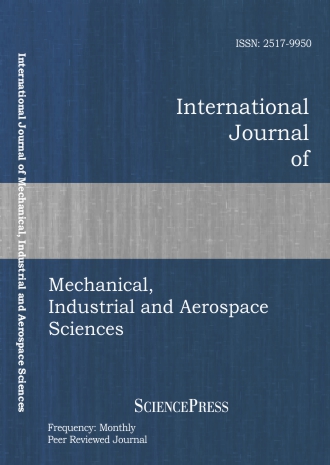
Scholarly
Volume:6, Issue: 10, 2012 Page No: 2261 - 2266
International Journal of Mechanical, Industrial and Aerospace Sciences
ISSN: 2517-9950
1756 Downloads
Establishing a Probabilistic Model of Extrapolated Wind Speed Data for Wind Energy Prediction
Wind is among the potential energy resources which can be harnessed to generate wind energy for conversion into electrical power. Due to the variability of wind speed with time and height, it becomes difficult to predict the generated wind energy more optimally. In this paper, an attempt is made to establish a probabilistic model fitting the wind speed data recorded at Makambako site in Tanzania. Wind speeds and direction were respectively measured using anemometer (type AN1) and wind Vane (type WD1) both supplied by Delta-T-Devices at a measurement height of 2 m. Wind speeds were then extrapolated for the height of 10 m using power law equation with an exponent of 0.47. Data were analysed using MINITAB statistical software to show the variability of wind speeds with time and height, and to determine the underlying probability model of the extrapolated wind speed data. The results show that wind speeds at Makambako site vary cyclically over time; and they conform to the Weibull probability distribution. From these results, Weibull probability density function can be used to predict the wind energy.
Authors:
Keywords:
References:
[1] G. Stefan, Prospects for End of the Year 2011, World Wind Energy